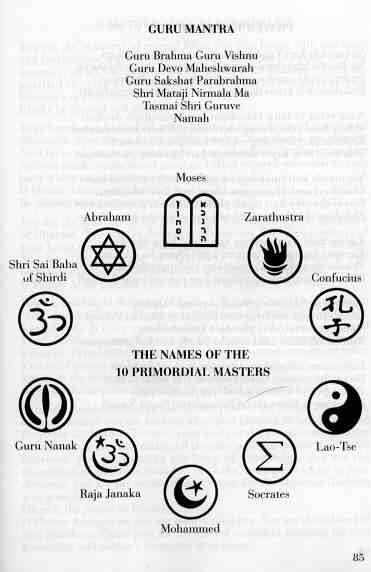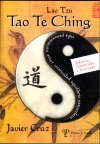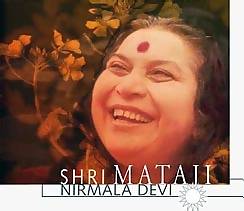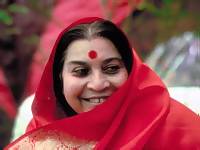![]()
Confucius recognized that attainment of Tao is the ultimate enlightenment.
From: jagbir singh
Date: Sat Oct 16, 2004 8:55 am
Subject: Confucius recognized that attainment of Tao is the ultimate enlightenment.
—- In shriadishakti@yahoogroups.com, Bagus Santoso
> Dear Jagbir,
>
> Thank you very much for answering my questions and doubts.
> (I wish I could find better word for my thanks to you).
>
> Just for your additional information, actually I have some matters
> to note about Confucianism. Confucius indeed told a lot of things
> about God Almighty. He usually referred It as"Heaven.”
>
> And after I got realization and reviewing some of His books,..
> somehow I realized that He also pointed some about enlightenment
> and three channels (ida, pingala, shushumna) implicitly. (I am still
> looking for kundalini, and I won't be surprised if I would find
> it) .
>
> And I have to be honest with you that one of the most important
> reasons that made me keep trying to seek the truth in SY was that
> Shri Mataji acknowledged Confucius as one of 10 Primordial
> Masters :-)
>
> Currently, I discusses about with my sister about the path that
> she is taking, and making some comparison with SY. I could not
> stand not doing it since she is the one who introduces me to SY by
> giving me the website of https://www.sahajayoga.com/. If you do
> not mind, I would like to inform you and ask your opinion again
> later about my discussion.
>
>
Dear Bagus,

The 10 Primordial Masters:
Moses, Zarasthura, Confucius,
Lao Tze, Socrates, Muhammad,
Raja Janaka, Guru Nanak, Shri
Sai Baba of Shirdi and Abraham.
Yes, it is true that Confucius is one of the 10 Primordial Masters but so is Lao-Tze. Confucianism concerned itself more with the external world and the Orient has excelled admirably. Lao-Tze preached about the inner world that still remains unimportant to most, even though it is centered in humanity searching for the eternal spirit.
"The two essential ideals of the Taoist religion are individual longevity or immortality, and social harmony and peace...”—Liu Xiaogan," Taoism" (in Our Religions, pp. 274, 233.)
Taoist belief draws from indigenous Chinese religion and incorporates that thought into its schema. Visiting scholar Liu Xiaogan of Princeton University writes concerning the Taoist system.
"In its popular forms it is represented by a pantheon of gods, spirits, and ghosts, and it has absorbed almost every ancient practice known to the Chinese people, such as offering sacrifices to ancestors, praying for favorable weather, and dispelling evil spirits.” (Our Religions, p. 284.).
This foundation explains the popularity, on an individual level, of the religion. To understand Taoism is to appreciate the alternative world view it offered to Confucianism.
Confucianism—classical, socially oriented, geared to public functions of Chinese families and the state, accepting of social duty and responsibility with an influx of rules, laws, ceremonies and traditions—soon became a system of social and psychological pressure. A diversion was needed. With romantic simplicity, openness and artistic wisdom.
Taoism offered a departure. Withdraw from the endless struggle and conflict...prize the individual life. Seek unity with nature. Obtain inner space and peace, freed from the excesses of confining Confucian practicality.
Major Themes

Tao Te Ching
"As a thing the way is Shadowy, indistinct. Indistinct and shadowy, Yet within it is an image; Shadowy and indistinct, Yet within it is a substance.”—Tao Te Ching, XXI:49 (trans. D.C. Law, p. 78.)
Way of the Universe. Taoist thought identifies the way of the universe, the pattern, rhythm, driving power, the ordering principle behind all life. In this sense, Tao (and the Taoist religion), becomes the integrating principle behind all of life.
"In his every moment a [person] of great virtue Follows the way and the way only.”Tao Te Ching, XXI:48, XI:27 (trans. D.C. Law, p. 78.)
Way of Life. Tao means the way of human life, that is, the way life should be. Tao is the natural guiding force which enables all things to realize their full potential...to be fulfilled.
Long Life. Quest for long life became a Taoist goal. Stemming from the focus on nature, with its rhythm of constant renewal, and trying to emulate that rhythm, Taoism focused on techniques to prolong life. In the Classic of Great Peace, an expression of the common values of the Chinese people, long life became a most important goal between heaven and earth. Taoist thought sought to conserve life in many ways. In keeping harmony within the spirit and material forces within the body, a life inducing heart, mind and will ensued.
Meditation—focusing one's spirit and so avoiding dissipation—became a valued technique. Consolidation of vital powers so as to resist death became the ideal—not nirvana or release. People die early not because of fate but because their way of living hurts their spirits or bodies. Moderation in the desires and emotions preserved body and soul. Gods become identified with specific body parts— heart, liver, spleen—and homage to these gods becomes a focus of devotional exercises.” (World Religions, Taosim)
Lao Tze's microcosm is Jesus' Kingdom of God or the Adi Shakti's Sahasrara - they are one and the same. According to Encyclopaedia Britannica Taoism believes that"man is a microcosm (small universe) correspondingly rigorously to this macrocosm (large universe); his body reproduces the plan of the universe ... This originally magical feeling of the integral unity of mankind and the natural order has always characterized the Chinese mentality, and the Taoists especially have elaborated upon it ... In religious Taoism the interior of the body is inhabited by the same gods as those of the macrocosm. An adept often searches for his divine teacher in all the holy mountains of China until he finally discovers him in one of the"palaces"Inside his head ... The affinities of Taoism with other Asian religions are numerous. If one distinguishes between universal religions of salvation, such as Buddhism and Islam, and the older, more culture-bound, such as Japanese Shinto and Hinduism, Taoism undoubtedly belongs to the second category.”
i deem that Lao-Tze was a great mystic who differed from Confucius in a number of ways, especially emphasizing enlightenment and being thoughtlessly aware as a means to attain immortality. Shawn Ford, in his book The Core of Taoism and Confucianism states:
"Lao Tsu said," The more you know, the less you understand.”He also said," Not-knowing is true knowledge...”How can this be? It would seem that Lao Tsu was telling us not to think. On the other hand, Confucius once said," If one learns but does not think, one is lost; if one thinks but does not learn, one is in danger.”Again, these two traditions seem to contradict one another until we take a deeper look at how each philosophy regards education.
In the Western world, when we think of education, we generally think of schools and universities. These are the institutions through which we achieve our learning. In the Taoist tradition, institutions are regarded with suspicion. They are looked at as going against nature by forcing people to be what they truly are not. However, education for the Taoist is a solo quest, without walls and boundaries.
The Taoist seeks to understand the naturalness of everything as it exists in the present. Instead of trying to know each separate piece, the Taoist tries to understand the whole, for the whole is the Tao. We can say that we know someone, but we do not understand them. But to say that we understand someone, is that not better than saying that we know them? In Taoism, the key is not to know something; the key is to understand it. One goes about this through self education and transformation. This kind of education is also natural; it just needs to be recognized. In addition, the Taoist is an educator in a sense. The Taoist teaches by example. Lao Tsu said," The Master, by residing in the Tao, sets an example for all beings.”Naturally, when others see one who is enlightened, they will realize it, and they will learn.
In Confucianism, too, it is self , and not institutional education, that is important. This may seem to contradict the stereotype of the Confucian scholar who studies the classics for years, takes the exams, and works on society; and it does. However, according to Confucius, people must first recognize themselves and their potential. This is at the heart of Confucian education. Confucius believed that in order to know about anything else in the world, we must first know ourselves. People must educate themselves as to how they fit into the world around them. This is Confucian knowledge; it is obtained by both the learning and thinking processes working together.
The Confucian master, like the Taoist master, is also a role model for society. By knowing his place in the world around him, and by following the way of the chun-tzu, the Confucian teaches by example. Others recognize him as such and will learn from being around him.
Therefore, when we look at the deeper meaning of education, we see that Taoism and Confucianism are very close in thought. We must know the importance of self realization and understand how we fit into the whole. We must teach others by example. This is a very important form of education. In this way, we will be better prepared for the greater education that is life itself.
Regarding the last main point, enlightenment, it may again seem that Taoist thought and Confucian thought differ greatly. For the Taoist, enlightenment is a process of realizing, following, and becoming one with the great Tao. On the other hand, Confucianism is generally thought to not deal with anything that is not concretely in this world; its concern is humanity. When we take a deeper look at what it means to be enlightened, we find that these two philosophies are seeing eye to eye. In taking this deeper look, let us look at transformation as a way to enlightenment.
To the Taoist, enlightenment is a continual, constant process. This enlightenment is first obtained by gradual transformation of the self until the Tao can be realized. Gradual transformation is obtained by following the way of the Taoist as passed down from generation to generation. The same is true in the Confucian context. Confucianism is not a static, unyielding philosophy concerned only with human interactions and the workings of good government. These are merely aspects of that which lies at the center of Confucian philosophy. At the center you will find that transformation of the self gives rise to all other Confucian ideas and, ultimately, to enlightenment. In Book I of The Analects, Confucius says," It is upon the trunk that the gentleman works. When that is firmly set up, the Way grows.”This"Way"Is the same Taoist"Way": the Tao. Confucius himself recognized that the attainment of the Tao is the ultimate enlightenment. Therefore, both Taoist thought and Confucian thought place the Tao at the center of their philosophy and as their goal. The difference between Taoism and Confucianism is seen in the words chosen to express enlightenment.”
Thus Bagus, if Confucius himself recognized that the attainment of the Tao is the ultimate enlightenment, then you are at the right place and right time. There is no better teacher than the Adi Shakti, especially once you know that She is the Inner Guide in the Sahasrara, the Seventh Chakra or microcosm that the Primordial Master Lao-Tze reveal millennia ago. So little is known about this microcosm that according to John Selby in Kundalini Awakening, even gurus do not discuss about it for lack of knowledge:
"All three of my main kundalini teachers refused categorically to discuss the seventh chakra. They felt that this chakra should be encountered without preconceptions of any kind to interfere with direct experience.
It is therefore with a bit of hesitation that I write anything at all about this ultimate chakra ... The Sanskrit name of this energy center is sahasrara, which means"to multiply by a thousand.”In a looser translation, sahasrara means tapping into the infinite spiritual dimensions that lie beyond the personal parameters of consciousness. Awakening the seventh chakra is most definitely an experience in which we transcend our individual minds and enter into perfect conscious harmony with the infinite spiritual wholeness of the universe.
The ancient Chinese book of wisdom, the Tao Te Ching by Lao-tzu, begins by saying that it is impossible to vocalize a name for the ultimate God. In like manner there is no chant for this chakra. The sound that comes to you in meditation upon this chakra is nothing less than the sound of the universe vibrating directly within you ...
Let me simply say that the seventh chakra is the swirling energy vortex located right in the top of your head and swirling also above the top of your head, where you transcend individual consciousness and tap into infinite consciousness.”You"Are gone. There is no"you.”There is only infinite consciousness, of which you are an integral part.
This egoless experience brings you into an ultimate state of spiritual bliss. In fact, the remarkable thing about the seventh-chakra consciousness is that it seems to be bliss itself. The universal consciousness, if we were to give it any label at all, would be Bliss Consciousness. This is all we can say.”
No one but the Shakti can explain about the Seventh Chakra because She resides there as Sahasrarambujarudha (106th): She ascends the Sahasrara-chakra. She dwells there as saksi or chitkala in the liberated souls. This is Moksa.
Mosksa is the immortality bestowed by the Mysterious Female that Lao-Tze was talking about.
The Valley Spirit never dies. It is named the Mysterious Female.
And the Doorway of the Mysterious Female is the base from which Heaven and Earth sprang.
It is there within us all the while; Draw upon it as you will, it never runs dry.
Tao Te Ching 6
jagbir

“Confucius has taught the humanity how we can improve our relations with other human beings. But, Lao Tse in China has very beautifully described Tao, meaning the Kundalini. And I have had a voyage through the Yangtze River through which Lao Tse had gone many times. I know he was trying to show that this river, which is the Kundalini, is flowing towards the sea and one should not be tempted by the Nature that is around. The Nature around the Yangtse River is very, very beautiful, no doubt, but one has to go through the river. Also, there are lots of currents which flow and can be quite dangerous and we need a good navigator who should take his ship across to the point where it is nearer the sea. At that stage it becomes very silent and extremely simple in its flow. This country has been endowed with great philosophers, I would say the greatest was Lao Tse, because humanism was for the preparation of human beings for their ascent about which Lao Tse had spoken. But, because of the subtle subject, it was not described in such a clear-cut manner as I am talking to you. It is such a pleasure for me to talk to this August gathering here. After traveling all over the world, I realize that China is one of the best countries as far as spirituality is concerned.”
Shri (Dr.) Mataji Nirmala Devi
Address to the United Nations Women's Conference, Fourth World Conference on Women
13 September 1995, Beijing, China

Shri Mataji Nirmala Devi "Chinese are other very ancient people, very wise. Culturally, they are like Indians. They have morality in them. One thing I noticed, they were extremely hospitable, kind and gentle. You saw people there who were from Germany, from Africa, from America. They looked so gross. But Chinese, you know, they had arranged, through their students, the volunteers, very well trained girls and boys and so gentle. They were paid nothing. They are very patriotic people. One has to learn from them. I wish Indians were like that. They are very dignified, very well mannered. Of course, if you insult them, they don't like. I must admit that Indians did that, insult them. And art, what art they have. Their government doesn't allow much to come inside China. They also don't care much for the Western culture. They dress up just like the Chinese, most of them.
Moreover, they're very learned. They had two great philosophers, but the greatest was Lao Tse, who talked about Kundalini, Realization, everything. Confucius talked about humanity. So they believe in Confucius because suits communism. In Hong Kong there are many Chinese and I asked them what will you do when the Hong Kong goes to the China, mainland China? They said," We are Chinese and we'll be with mainland China. What does it matter? We're not going to run away.”And do you know how they became rich? So many Chinese have gone abroad. And after this episode of killing the young students they were angry, but when it was explained that how can you suddenly give freedom to these young boys, students. One can do it gradually. Otherwise, like Russia, there will be problem of mafia. They are very wise. So the Chinese who are abroad understood and the Chinese abroad send fifty to sixty percent of their income to their government. They are not attached to money. That's how they have become rich, very dedicated. Thousands and thousands of people are there, but the system that they have built, so beautiful that nobody will start playing.
I was amazed that while working nobody drank anything, even a drop, so very alert. But when we were coming in the plane first class all the ladies and men were drinking vodka, vodka, bottles after bottles. I got a headache. Chinese are ashamed to do such a thing. Also they have told Me that the Chinese men marry Russian women and then give it up and call the Chinese women. I tell you, Chinese women are very really very sweet. They don't compete with men. They are very sweet and they win over men with their sweetness. I also know that they are very sensitive to spirituality. Even their prime minister asked Me about spirituality when I went with my husband. And I'm sure one day you'll find your brothers and sister very closely in China.”
The Messiah-Paraclete-Ruh-Devi
Religion, Sahaja Yoga And Realization, Medical Conference, St. Petersburg, Russia — September 20, 1995
Disclaimer: Our material may be copied, printed and distributed by referring to this site. This site also contains copyrighted material the use of which has not always been specifically authorized by the copyright owner. We are making such material available to our readers under the education and research provisions of "fair use" in an effort to advance freedom of inquiry for a better understanding of religious, spiritual and inter-faith issues. The material on this site is distributed without profit. If you wish to use copyrighted material for purposes other than "fair use" you must request permission from the copyright owner.